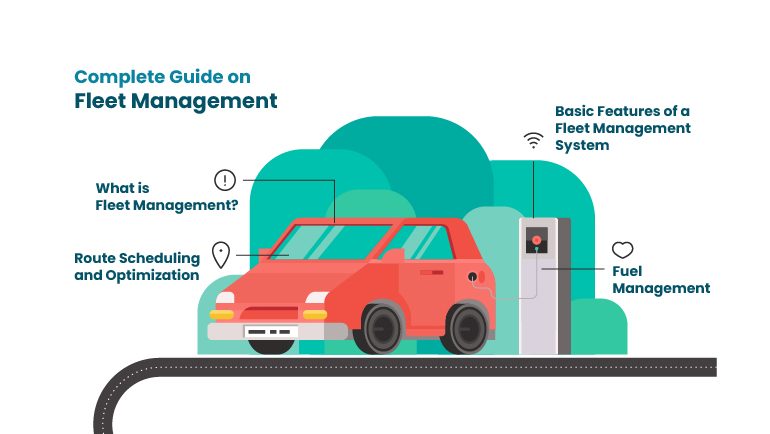Complete Guide on Fleet Management Software
Complete Guide on Fleet Management Software
The industrial revolution has brought a new business mindset. It has changed everything from work ethics to operating methods. Nowadays, companies think of new ways to enhance their productivity. The fleet business also evolved with time. However, it missed an ultimate solution to its needs until fleet management systems came along. These management solutions solved a lot of daily problems for businesses.
The concept of innovative telematics platforms was based on vehicle management. Their functionality was devised by considering the daily operations of a fleet. Nowadays, monitoring systems perform most of the managerial tasks and that too with better efficiency. They not only save time but also improves a business’s productivity.
In this blog, we will discuss different aspects of fleet management software in detail.
What is Fleet Management?
The process to manage and utilize all the assets within a fleet effectively from acquisition to disposal is known as Fleet Management. It is a vast term that covers a lot of aspects from monitoring and maintenance to telematics. Managers employ various techniques to perform daily operations. Therefore, there is no fixed mechanism for managing a fleet.
What is the purpose of fleet management?
Any business that uses vehicles in its daily operations requires a management mechanism. Its purpose is to handle the complete lifecycle of commercial vehicles on a daily basis. It includes enhancing productivity, reducing associated risks, and ensuring compliance. Although the modern vehicle tracking systems perform a lot of functions, some of the prominent ones are given below:
Vehicle Acquisition:
The vehicle acquisition is not a simple task. It involves several factors like determining vehicle suitability, negotiating with manufacturers, vehicle legislation like WLTP and RDE2. While selecting vehicles, you may also have to consider fuel efficiency, taxation, and insurance expense. In addition to that, the budget is another integral aspect to look into before buying a vehicle. All these things demand an efficient management mechanism to get the job done effectively.
Fuel Management:
Preventing unnecessary expenses is the most significant objective of a fleet manager. Fuel costs make up a majority of operational expenditure, and keeping them low is a huge challenge. Many factors, like market rates and the country’s foreign policy, influence the fueling expense. Handling such aspects through management is impossible. However, the daily fueling expense is something that is controllable through effective planning and monitoring.
Effective fleet management helps managers to ensure fuel efficiency. It is done by strictly monitoring the usage daily. The reporting is a crucial factor that keeps the drivers careful during their routine trips.



Comments
Post a Comment